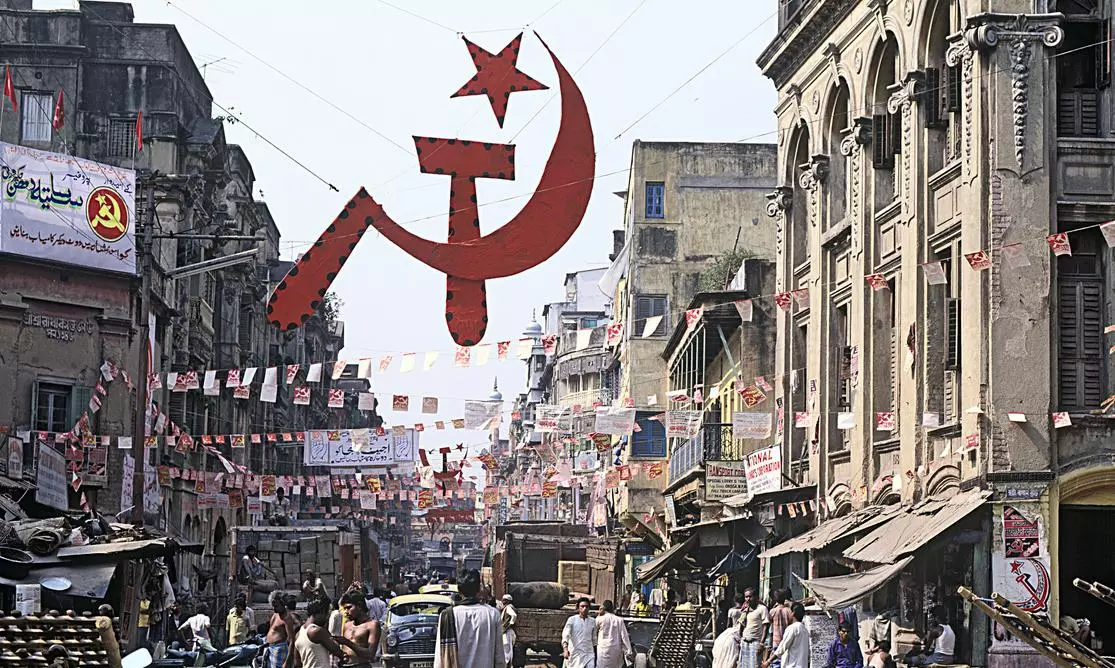
- Home
- India
- World
- Premium
- THE FEDERAL SPECIAL
- Analysis
- States
- Perspective
- Videos
- Sports
- Education
- Entertainment
- Elections
- Features
- Health
- Business
- Series
- In memoriam: Sheikh Mujibur Rahman
- Bishnoi's Men
- NEET TANGLE
- Economy Series
- Earth Day
- Kashmir’s Frozen Turbulence
- India@75
- The legend of Ramjanmabhoomi
- Liberalisation@30
- How to tame a dragon
- Celebrating biodiversity
- Farm Matters
- 50 days of solitude
- Bringing Migrants Home
- Budget 2020
- Jharkhand Votes
- The Federal Investigates
- The Federal Impact
- Vanishing Sand
- Gandhi @ 150
- Andhra Today
- Field report
- Operation Gulmarg
- Pandemic @1 Mn in India
- The Federal Year-End
- The Zero Year
- Science
- Brand studio
- Newsletter
- Elections 2024
- Events
- Home
- IndiaIndia
- World
- Analysis
- StatesStates
- PerspectivePerspective
- VideosVideos
- Sports
- Education
- Entertainment
- ElectionsElections
- Features
- Health
- BusinessBusiness
- Premium
- Loading...
Premium - Events

The Left helped TN's tribals to secure justice, proving its huge potential; it now needs to shed objections to capitalism and embrace globalised growth
Events and personages occur twice in history, the first time as farce and the second time as tragedy – we have all heard that.
What if events and personages manifest themselves as both farce and tragedy at the same time? The Left in India performs this complicated task with consummate ease.
Desperate quest for electoral success
A bird’s eye view of the Left depicts farce: a desperate search for electoral success in areas where it has little organic presence, via unequal alliances, such as with the DMK in Tamil Nadu and the Congress, wherever the party feels charitable enough to offer it a seat or two – of course, outside Kerala, where the Congress is the Left’s chief rival.
In Karnataka, the CPI(M) contested the assembly elections in alliance with the Janata Dal(S), which everyone knew was a stalking horse of the BJP, a relationship the saffron party and the JD(S) brought out in the open later.
Yet, after the Congress won the election and Opposition parties flocked to Bengaluru to celebrate this rare victory over the BJP, the CPI(M) general secretary jostled his way into the front row of the Opposition leaders’ line-up, clasping hands with Congress Chief Minister Siddaramaiah and other stars of the so-called secular line-up. Left leaders scrambling for some space at meetings of the Opposition INDIA alliance is a common sight.
In West Bengal, the CPI(M) struggles to balance its fight for local political space vis-à-vis the Trinamool Congress with its Opposition to the BJP at the national level and faces ridicule at the hands of the acerbic Mamata Banerjee.
Fight for workers’ right
Yet, this is not all that is there to the Left. It does sterling work organising workers in the industrial belts of North India into trade unions against very stiff odds. That unions wreck industrial progress is a myth many buy into, especially among India’s middle class. They are probably unaware that Japan pulled itself out of the debris of World War II as a heavily unionised economy.
Gen. Douglas MacArthur led the American occupation of Japan that followed Japan’s surrender and oversaw the making of Japan’s modern Constitution. It has not only a provision that restricts the Japanese armed forces to a defensive role, but also one that gives workers a right to collective bargaining.
Gen MacArthur actively encouraged unionising the workers, not because he thought this would hobble the Japanese economy but because he knew that a strong trade union movement was the best guarantee against the revival of Japan’s feudal Samurai culture, which could lead to militarism once again. When he left Japan, 57 per cent of the workforce was already unionised.
Why unions matter
Japan had already had some kind of land reforms during the Meiji restoration, which led to its emergence as a modern, industrial economy. MacArthur oversaw another round of thoroughgoing land reforms, completing the breakdown of feudal relations in land.
Modern land ownership and a working class with the bargaining strength to secure decent earnings meant sustained domestic demand for the produce of Japanese industry. That formed the basis for Japan’s subsequent export success and growth into the world's second-largest economy, just behind the US. It took China’s modernisation to dislodge the Japanese from that position in the pecking order of economic might.
European labour is pretty much unionised, as is Korea’s. Unionisation has not hobbled these economies, rather, it has helped enlarge the domestic market and fuelled economic growth.
Unions could perform a similar function in India. What employers see as a nuisance and constraint at the enterprise level becomes a driver of demand and prosperity at the macro level.
The Vachathi example
But it is not as drivers of demand via unionisation that the Left reveals its real potential. To get a glimpse of that, we could go to Vachathi.
Vachathi is a jungle hamlet in Tamil Nadu’s Dharmapuri district, part of erstwhile sandalwood smuggler Veerappan’s hunting ground. On June 20, 1992, 269 men in uniform – forest and revenue officials and policemen – raided Vachathi, suspecting the villagers of sandalwood smuggling.
They beat up the villagers, tore down their flimsy huts, smashed their pots and other belongings, rounded up the women, selected 18 of them, including a 13-year-old, carried them off in a lorry, raped them, threw them in jail, threatened them with dire consequences if they complained, and let them off after three days.
The CPI(M) tribal organisation carried out an investigation, and, on June 28, 1992, its MLA, one Annamalai, filed a complaint. J Jayalalithaa was the chief minister of Tamil Nadu at that time. Her administration refused to entertain any complaint over the incident.
The party’s state secretary wrote to Jayalalithaa, and the state minister for forests dismissed the complaint against officials as fabricated. In August, a member of the National Commission for the Scheduled Castes and Scheduled Tribes visited the place and filed a report, seeking a probe, citing prima facie evidence of human rights violation. Nothing happened.
Ensuring justice, even after a decade
In January 1993, the state secretary of the CPI(M) filed a petition in the Madras High Court, seeking transfer of the case to the CBI for investigation. It took the court two years to order a CBI investigation.
More than 11 years later, in April 2006, the CBI filed a chargesheet against 269 members of the raiding party. In February 2008, the case was transferred to the Dharmapuri Court, and charges against 54 people abated, as they had passed away.
On September 29, 2011, the Dharmapuri Sessions Court found 215 people guilty of charges of ransacking the houses of the villagers, assaulting them indiscriminately without sparing even the aged, women and children, detaining the villagers illegally, destroying their belongings, slaughtering the cattle in the village and throwing their carcasses into the village wells. Seventeen were found guilty of rape.
The charges merited imprisonment ranging from two to 10 years. The court also ordered that the raped women be paid compensation of ₹15,000 each, the state being free to recover half the compensation amount from the perpetrators. This order came nine-and-a-half years after the crime.
Those who were found guilty appealed against their convictions. On the 12th anniversary of the sessions court verdict, the Madras High Court dismissed all the appeals, and ordered the state government to pay a compensation of ₹10 lakh each to the rape survivors. Twenty-one years after a village of tribal people saw their lives shattered by the agencies of the state sworn to protect them, the court gave them justice of sorts.
CPI(M), a pillar of support for hapless tribals
How could a few hundred tribal people sustain this kind of a protracted legal struggle, warding off police intimidation, media calumny and social ostracism, over two decades and more? The simple fact is that the CPI(M) and its mass organisations, for tribal people, for women and for workers, offered the villagers sustenance, through moral, financial, manpower and legal support.
Of the countless atrocities that tribal people suffer in different parts of the country, one at least was fully exposed and its perpetrators punished. Justice Velmurugan, who delivered the High Court verdict, even observed that the smuggling of sandalwood was carried out by powerful people in cahoots with some corrupt forest officials, even if some villagers were involved as minor actors.
The Communists organised the traumatised tribal community to rebuild their lives and fight for justice. They mobilised the institutional remedies of the democratic polity to win that battle. This is building democracy in a culture of pre-democratic oppression of subaltern groups. No other political grouping spends its energy for more than two decades on such a cause.
In a political culture which privileges form over substance, the Communists stay committed to the struggle to realise, actualise democracy, for some of the least empowered people in the country. They build democracy where only the promise of democracy exists, as an abstract ideal shut away in a tome called the Constitution. This is their core strength, their unique selling proposition.
Embracing capitalism
Yet, the Communists are more worried about reviving the Congress in order to fight the BJP, than about deploying their core competence in the vast hinterland, where even the rudimentary democracy that has been nurtured over the years has been stunted and distorted by means of sectarian hatred, hero worship and easy handouts.
The Communists insist on bundling their fight for democracy with the pursuit of a chimera called non-capitalist development, closing their eyes firmly to the robust economic benefits of full-fledged capitalist growth in so-called Communist countries such as China and Vietnam. This leaves them, even with their commitment to building democracy, outside the mainstream of viable political options for most people, who want jobs, even as communists explain that to be employed is to be exploited.
This is the tragedy: the only political force serious about building democracy cuts its own Achilles tendon by badmouthing capitalist growth, as if there were some other kind of growth somewhere out there, in Proxima Centauri b, perhaps.
Vachathi shows a future that is good for India and for the Communists, but it is viable only if the Communists shed their objections to capitalism and embrace broad-based, globalised growth as the route to popular emancipation from want and the enervating drudgery of subsistence.
(The author wishes to acknowledge the podcast 'Joe-metric View' for drawing his attention to Vachathi.)
(The Federal seeks to present views and opinions from all sides of the spectrum. The information, ideas or opinions in the articles are of the author and do not necessarily reflect the views of The Federal.)


